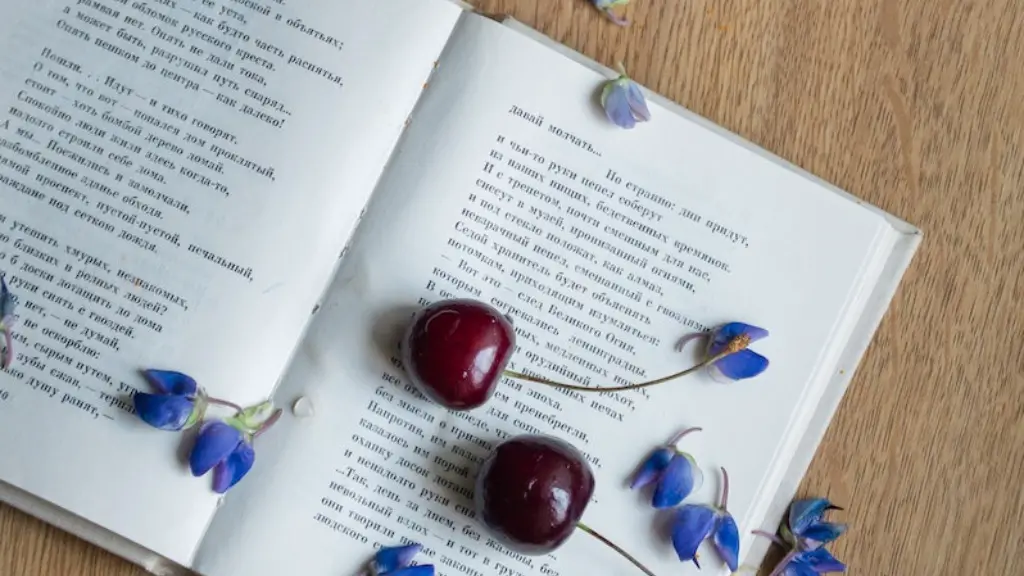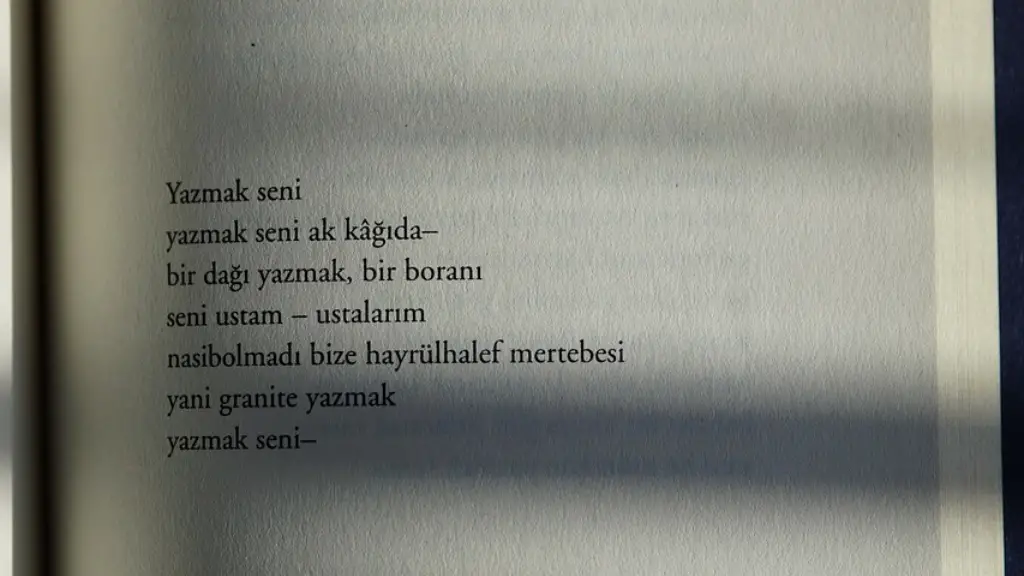Walt Whitman is one of the most beloved American poets of all time. He wrote some of the most iconic and influential poetry of the nineteenth century, and his words have been celebrated in songs and essays over the generations. He is renowned for his use of free verse and versatile styling, making every line of his works unique and memorable. His lyrics have a unique blend of imagery, symbolism, and meaning that attracts readers and lingers in the mind long after the original reading.
Whitman’s words are so influential because of the power and emotion he was able to convey in his writing. His themes exploring death, identity, love, patriotism and nature are still relevant today, and they often explore the complexities of the human experience. No matter the occasion, Whitman’s poetry captures the depth and wonder of living, encouraging readers to think deeply about their own emotions, relationships, and mortality.
In Whitman’s best known work “Song of Myself”, readers may find his best known lines such as “I celebrate myself, and sing myself” which captures the idea that one should embrace their own individuality and live fully in the present. It is a powerful reminder of the importance of appreciating one’s own autonomy and living life to the fullest.
Whitman’s lyrics in “The Mystic Trumpeter” explore the idea of a spiritual journey from death to enlightenment. He creates a starkly melancholic yet beautiful contrast between death and the discovery of something greater beyond, through the repetition of themes like mortality, faith, and transformation. Through his contrast, his lyrics become a poignant reminder of how death can provide an opportunity for spiritual growth and a greater understanding of life.
Whitman’s lyrics resonate in his readers, transcending time and place. His words address universal issues, giving readers from all backgrounds something to take away from his works. He wrote in an accessible and inviting style, to remain relatable to everyone. His words are simple and direct, yet they often reveal endlessly complex meanings.
Whitman’s lyrics remain relevant today, in part because of the strength and sense of fearlessness he conveys in them. His works offer comfort in hard times and plenty of food for thought. Any reader can appreciate the beauty and power of Whitman’s words, and the timelessness of his classic lyrics.
Whitman and Individuality
From the beginning of his career, Walt Whitman’s philosophy on individuality has been a major theme found in his work. In his classic poem I Sing the Body Electric, Whitman’s celebration of the human body is a reminder of our own human potential, and the limitless possibilities of the human experience. His lyrics are a reminder that we are all individuals, each with our own journey. Whitman’s passion for exploration and adventure is evident throughout his works, and his joy for living is contagious.
In the poem I Hear America Singing, he looks upon his fellow citizens with admiration and celebration. Whitman celebrated the individual passions of his fellow citizens and the diversity of their experiences. He proclaimed that to understand a nation, one must understand its citizens. Through his works, Whitman hopes to remind readers of the importance of understanding and celebrating our diverse American tapestry.
In his poem To You, Whitman speaks directly to his readers, while also emphasizing his themes of individuality and independence. He speaks to his readers of “living in the divine amid all his,” as each path is held sacred and celebrated. His tone is inviting and open, urging readers to embrace their own stories and to accept the flaws that come along with it. Whitman’s words encourage readers to be aware of the beauty and complexity of the human experience, and to strive for self-discovery.
Overall, Walt Whitman’s lyrical words of individuality, exploration, and celebration remain some of the most influential in American literary history. His works address timeless themes that are still relevant today, and they possess a unique power to captivate readers. His words remain an important reminder to recognize and embrace the potential within us all.
Whitman and Nature
In Whitman’s work, he often explored the natural world with a sense of awe and reverence. He believed that nature could bring out the beauty and complexity of the human experience, and could provide a sense of unity and connection with the universe. His poetic exploration of nature often evoked a sense of stillness and peace, as it reminded readers of the limitless possibilities of the natural world.
In his famous poem “When Lilacs Last in the Dooryard Bloom’d” he paints a vivid scene of grief in the aftermath of Abraham Lincoln’s death. He laments alongside the beautiful lilacs and other aspects of nature that envelop the dooryard, providing a heartbreaking image of mourning surrounded by the beauty of life. He creates a universal connection between death and the cyclical patterns of nature, and through it, readers may find solace in times of grief.
In the poem “Song of the Rolling Earth”, Whitman speaks poetically of a rolling, vibrant world; where the sun rises and sets and the birds chirp amidst perpetual movement and transformation. He celebrates life through vibrantly powerful language, urging readers to appreciate the very essence of existence. He promotes indwelling in nature and he emphasizes the importance of treating the natural world with respect and care.
In summary, Walt Whitman’s lyrical exploration of nature is striking in its poignancy and beauty. He reminds readers of the divine connection between themselves and the natural world and encourages them to be more mindful of the delicate balance that exists between humankind and the environment. His words promote a sense of curiosity and wonder, inspiring readers to appreciate the graceful beauty of the natural world.
Whitman and Death
Whitman’s exploration of death and mortality is a reflection of his ongoing quest to discover the divine in the human experience. He was a firm believer in the importance of understanding life’s fleeting moments and of making the most of one’s life. His poems are often filled with melancholic undertones, as he explored life’s many sorrows and the fear of mortality.
In the poem “Out of the Cradle Endlessly Rocking”, Whitman reflects on death and loss through the image of a lone bird singing sadly in a tree. It is a heartbreaking story of grief and hope as the bird calls out for its lost mate. Throughout the poem, Whitman invites readers to join him in the tree, providing a pause for reflection on the inevitability of death. His words are a reminder to make the most of life, for no one knows when death will be upon them.
In one of Whitman’s most famous poems “O Me! O Life!” he reflects on the frustrations of life, as well as the possibility of making something meaningful out of it. He admits to the difficulty of life, to the sorrows and joys that come with it. However, he also speaks of “parting”, suggesting the potential acceptance of death. This lyrical exploration of the joys and sorrows of life mixed with his acceptance of death gives this poem a unique and powerful weight. Readers may find comfort in his words, as they provide a reminder to savour life and to live with intention.
Overall, Whitman’s reflection and exploration of death offer insightful and powerful perspectives on life, death and the legacy we leave behind. His words provide a reminder of life’s finiteness and encourages readers to savour and appreciate life, however uncertain it may be.
Whitman and the Civil War
Throughout his career, Walt Whitman was an outspoken political commentator with a passion for the issues of his day. His writing often focused on the war-torn climate of the United States during this time and his poetry reflected the brokenness and terror that often engulfed the battlefields. He was a fierce advocate of the Union, the people and their communities and his works of poetry continued to shed light on the atrocities of war and the power of brotherly love.
In “Beat! Beat! Drums!”, Whitman writes about the amount of devastation and death the Civil War caused, particularly with the idea of how vast and overwhelming the human loss is. His anguished words serve to show the extent of the damage done, and remind us not to take war-making lightly. Through his lyricism, Whitman takes us straight to the frontline, where the drums can be felt and voices lost in the night.
In his poem “Come Up from the Fields Father”, he paints a different, yet still haunting picture of the war. Rather than focusing on the fighting front, Whitman works to capture the impression the war brings to the home front. He speaks of the sorrow his father, who served as a volunteer in the Union army, brings home, and reflects on the pain of being so far away from the ones they love. This poem serves to show the impact of war on not just those on the battlefield, but their families as well.
In conclusion, Walt Whitman’s lyrical writing on the Civil War offers a powerful reminder not to take war lightly. Through his passionate musings, Whitman has provided us with a reminder to take the time to appreciate the real human cost of war and never forget the innocent lives lost in the cause of freedom.
Whitman and Themes of Love
Walt Whitman has contributed to the literary canon many great works of poetry that capture themes of love and friendship. His lyrical words are a reflection on the power of connections between people, and the power of love to connect us even in the most trying of times. He often used love as a powerful tool to explore mortality and spirituality, as he wrote of its role in life, death, and eternity.
In his poem “I Saw in Louisiana a Live-Oak Growing”, he demonstrates the power of love in the midst of uncertainty. He speaks of the resilience of love, in that it can survive in the worst of storms. He expresses the unique power of love to remain even when other things may vanish, serving a reminder that when else fails, love still remains.
In “Love of Comrades”, Whitman speaks to the special bonds and camaraderie that can come with helping and caring for others. He captures the sentiment that when we find strength in each other, our individual strengths can grow together. Through his powerful and compassionate words, Whitman reminds readers of the beauty of human connection and the importance of relying on one another during difficult times.
Overall, Walt Whitman’s lyrical exploration of themes of love can be felt in many of his works. His words are powerful reminders of why loving and caring for one another is important and of the importance of connection. His words can bring out a sense of peace, understanding, and support amongst his readers.





